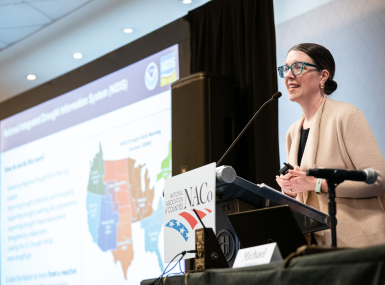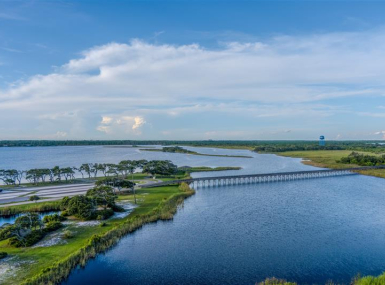EPA releases guidance limiting state authority over energy siting projects
Upcoming Events
Related News

Key Takeaways
On Friday, June 7, the U.S. Environmental Protection Agency (EPA) released new guidance on the Clean Water Act’s (CWA) Section 401 water certification program. The guidance follows the president’s April 10 Executive Order on Promoting Energy Infrastructure and Economic Growth, which instructed the agency to revisit Section 401 CWA policies that prevent energy projects from moving forward.
Under current application of CWA Section 401, any project that may have an impact on water resources is required to receive a CWA Section 401 Water Certification from the impacted state that “certifies” that the project meets state-established water quality standards requirements.
However, the new guidance – Clean Water Act Section 401 Guidance for Federal Agencies, States and Authorized Tribes – revises the timeline for states to review, approve or deny proposed energy projects. States are now limited to one year from the time of submittal to approve or deny an application. If a state does not ask for an extension or make a final determination by that point, federal agencies will assume the state “waived” the certification and the federal government will issue the permit. Additionally, the guidance limits the scope of issues that states can address in a Section 401 certification to CWA and state and tribal water quality requirements, preventing states from using the Section 401 process to address an energy project’s impact to aquatic habitat, inadequate river flow and impacts on fish and other wildlife.
The recently released guidance follows concerns expressed by the administration and industry groups that states have used the Section 401 process to put additional requirements on or deny energy infrastructure siting projects. While the guidance is effective immediately, it is likely that legal challenges will be filed. Additionally, the EPA is expected to undergo a more formalized rulemaking since guidance can be easily overturned at any time, or from one administration to the next.
Last month, NACo, along with other local government groups, sent a letter to EPA Administrator Andrew Wheeler requesting a delay to a proposed rule on Section 401 until after the EPA could more fully engage with state and local governments. To view the letter, click here.

Attachments
Related News

NOAA outlines help for counties navigating drought’s growing risks
In April, the National Integrated Drought Information System will launch the Mid-Atlantic Drought Early Warning System, which will help county officials allocate resources and attention to mitigate drought-related disasters.

House Agriculture Committee introduces 2026 Farm Bill
On February 13, House Agriculture Committee Chairman G.T. Thompson (R-Pa.-15) introduced the House version of the 2026 Farm Bill, the Farm, Food, and National Security Act of 2026.

Congress increases oversight of Gulf Coast Restoration Trust Fund
On February 3, Congress passed new funding and authority for an audit and expanded oversight of the Gulf Coast Restoration Trust Fund, which houses federal funds for recovery from the Deepwater Horizon oil spill disaster. The provision was included in the Financial Services-General Government appropriations bill (FSGG), which was one of five included in a minibus package passed by Congress (P.L. 119-75).